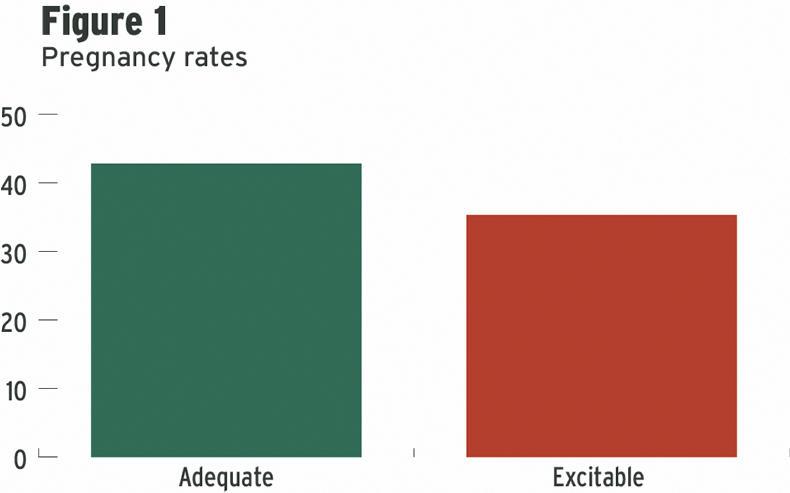With the main objective of every suckler farm being to produce one calf per cow annually, the reproductive performance of the herd is crucial to the success of any operation.
The Oregon research, carried out on over 760 cows, examined the effects of cow temperament on pregnancy rates to fixed-timed AI.
Excitable temperament can impair reproductive function through several mechanisms, such as decreased feed intake and nutritional status and by stimulating stress responses that disrupt physiological processes associated with fertility.
Excitable temperament can impair reproductive function
Temperament scores were assigned during fixed-time AI and assessed by two measures – chute score and exit velocity from the chute.
Chute score was measured on a scale of one to five, with one being calm and no movement and five being violent and continuously struggling.

Exit velocity was assessed based on the speed the cow exited the chute and again assigned a score of one to five, one being the slowest exit and five being the fastest.

These two scores were then averaged to give a temperament score of one to five.
A score of three or less was classed as adequate and anything greater than three was classed excitable. Pregnancy status was determined 40 days later by scanning the cows.
As shown in the diagram below, cows with an adequate temperament had a higher pregnancy rate (42.8%) than those with an excitable temperament (35.3%).
This showed that calm, settled cows were more likely to become pregnant than restless, volatile ones.

The cows used in this trial were of Bos indicus origin, the Zebu cattle common in Brazil, though similar results have been demonstrated when European-type cattle were used.
These results have also been shown to hold whether cows are inseminated by natural breeding or fixed-time AI.






 This is a subscriber-only article
This is a subscriber-only article













SHARING OPTIONS: